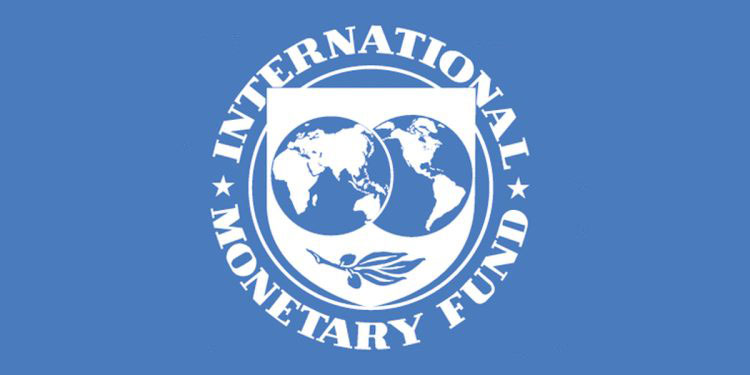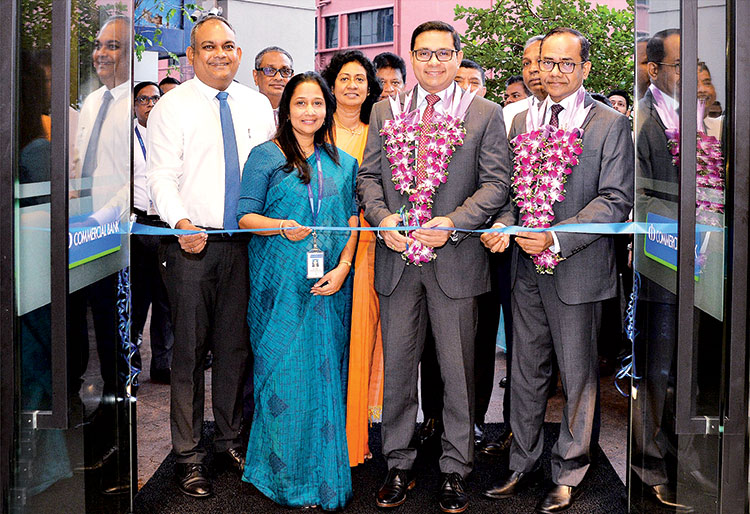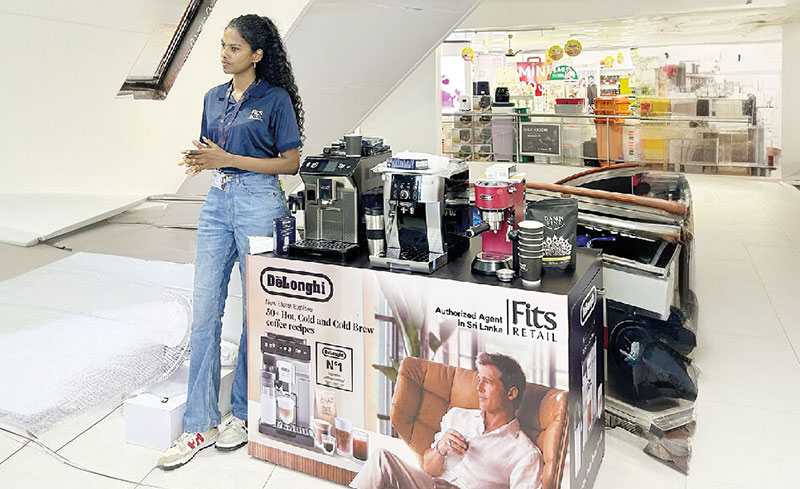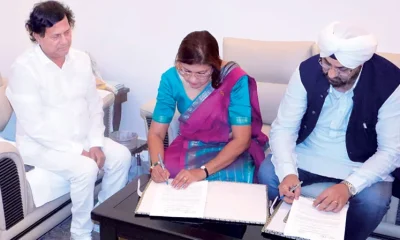Business
IPS advocates stricter regulations for Alcohol Control in Sri Lanka at the “Policy Dialogue on Alcohol Control for a Healthier Sri Lanka”

Recent statistics paint a stark picture of alcohol-related challenges facing Sri Lanka, with an alarming 83% of deaths attributed to non-communicable diseases (NCDs). Alcohol consumption emerges as a prominent risk factor for NCDs, exacerbating health costs and contributing to issues such as road accidents and domestic violence. Despite its perceived economic benefits, the economic toll of alcohol-related conditions surpasses any revenue generated. The World Health Organization (WHO) estimates that in 2015 alone, the economic cost of alcohol-related conditions amounted to a staggering USD 885.86 million, equivalent to 1.07% of Sri Lanka’s GDP for that year.
In light of these pressing concerns, the Institute of Policy Studies of Sri Lanka (IPS) recently hosted a “Policy Dialogue on Alcohol Control for a Healthier Sri Lanka”, at the Saman Kelegama Memorial Auditorium, IPS. The event aimed to advocate for evidence-based alcohol control policies, drawing from findings of the IPS’ “RESET Alcohol Initiative” programme, funded by RESET Alcohol – A Global Alcohol Policy Initiative which delves into critical aspects of alcohol policy, including pricing, taxation, and the broader political economy dynamics at play.
Dr Nisha Arunatilake, Director of Research at IPS, and Pubudu Sumansekara, Consultant for the Sri Lanka RESET Alcohol Initiative, explained the RESET Alcohol Initiative, which aims to change the disconnect between the public perception of alcohol as a social necessity, and its grave health consequences.
In his keynote speech, Dr Alan Ludovyke, Chairman of the National Alcohol and Tobacco Authority highlighted the health costs of alcohol consumption and the disproportionate burden of alcohol-related violence and health issues on vulnerable communities. He stressed the imperative for collaborative efforts among the Government, think tanks, media, and civil society to address these challenges.
The dialogue featured three insightful panel discussions moderated by Dr Nisha Arunatilake, Dr Sajeeva Ranaweera, from the Sri Lanka Medical Association (SLMA) – Expert Committee on Tobacco and Illicit Drugs and Dr Alan Ludovyke, focusing on key aspects of alcohol policy, including price sensitivity of alcohol, revenue implications, and power dynamics of alcohol control. IPS Research Economist Ms Priyanka Jayawardena presented compelling evidence of the economic burden imposed by NCDs, where households spend 10% of their monthly budget on alcohol. She presented evidence that supports alcohol taxation as a cost-effective measure to reduce NCD risk factors, particularly among low-income groups. The progressive nature of alcohol taxation, where higher-income groups bear more tax burden, was underscored as a means to positively influence household economic and health benefits.
IPS Research Fellow Dr Lakmini Fernando highlighted the potential of increased excise duty rates to reduce alcohol consumption while generating government revenue, contributing to economic recovery. Challenges related to data availability for accurate modelling were acknowledged, emphasising the need for quality disaggregated data for informed policy decisions. Recommendations from the panel highlighted the importance of designing a medium-term alcohol tax policy that considers both revenue generation and health impacts, ensuring a balanced approach to alcohol control. IPS Research Economist Ms Sunimalee Madurawala discussed the intricate dynamics of industry interference in alcohol policy and proposed strategies to mitigate its adverse effects on public health.
The policy dialogue, which saw the participation of key stakeholders, including government officials, medical professionals, and civil society representatives underscored the critical need for evidence-based, collaborative approaches to alcohol control in Sri Lanka, balancing health objectives with economic considerations and addressing industry influences effectively.
Business
IMF staff team concludes visit to Sri Lanka

An International Monetary Fund (IMF) team led by Evan Papageorgiou visited Colombo from April 3 to 11, 2025. After constructive discussions in Colombo, Mr. Papageorgiou issued the following statement:
“Sri Lanka’s ambitious reform agenda supported by the IMF Extended Fund Facility (EFF) continues to deliver commendable outcomes. The post-crisis growth rebound of 5 percent in 2024 is impressive. Inflation declined considerably in recent quarters and has fallen to ‑2.6 percent at end-March 2025. Gross official reserves increased to US$6.5 billion at end-March 2025 with sizeable foreign exchange purchases by the central bank. Substantial fiscal reforms have strengthened public finances.
“The recent external shock and evolving developments are creating uncertainty for the Sri Lankan economy, which is still recovering from its own economic crisis. More time is needed to assess the impact of the global shock and how its implications for Sri Lanka can be addressed within the contours of its IMF-supported program.
“The government’s sustained commitment to program objectives is ensuring policy continuity and program implementation remains strong. Going forward, sustaining the reform momentum is critical to safeguard the hard-won gains of the program and put the economy on a path toward lasting macroeconomic stability and higher inclusive growth.
“Against increased global uncertainty, sustained revenue mobilization efforts and prudent budget execution in line with Budget 2025 are critical to preserve the limited fiscal space. Boosting tax compliance, including by reinstating an efficient and timely VAT refund mechanism, will help contribute to revenue gains without resorting to additional tax policy measures. Avoiding new tax exemptions will help reduce fiscal revenue leakages, corruption risks and build much needed fiscal buffers, including for social spending to support Sri Lanka’s most vulnerable. Restoring cost recovery in electricity pricing will help minimize fiscal risks arising from the electricity state-owned enterprise.
“The government has an important responsibility to protect the poor and vulnerable at this uncertain time. It is important to redouble efforts to improve targeting, adequacy, and coverage of social safety nets. Fiscal support needs to be well-targeted, time-bound, and within the existing budget envelope.
“While inflation remains low, continued monitoring is warranted to ensure sustained price stability and support macroeconomic stability. Against ongoing global uncertainty, it remains important to continue rebuilding external buffers through reserves accumulation.
“Discussions are ongoing, and the authorities are encouraged to continue to make progress on restoring cost-recovery electricity pricing, strengthening the tax exemptions framework, and other important structural reforms.
“The IMF team held meetings with His Excellency President and Finance Minister Anura Kumara Dissanayake, Honorable Prime Minister Dr. Harini Amarasuriya ; Honorable Labor Minister and Deputy Minister of Economic Development Prof. Anil Jayantha Fernando, Honorable Deputy Minister of Finance and Planning Dr. Harshana Suriyapperuma, Central Bank of Sri Lanka Governor Dr. P. Nandalal Weerasinghe, Secretary to the Treasury Mr. K M Mahinda Siriwardana, Senior Economic Advisor to the President Duminda Hulangamuwa, and other senior government and CBSL officials. The team also met with parliamentarians, representatives from the private sector, civil society organizations, and development partners.
“We would like to thank the authorities for the excellent collaboration during the mission. Discussions are continuing with the goal of reaching staff-level agreement in the near term to pave the way for the timely completion of the fourth review. We reaffirm our commitment to support Sri Lanka at this uncertain time.”
Business
ComBank unveils new Corporate Branch at Head Office

The Commercial Bank of Ceylon has transformed its iconic ‘Foreign Branch’ into the ‘Corporate Branch,’ reaffirming its commitment to delivering dedicated, comprehensive financial solutions to corporate and trade customers.
The Bank said this transformation represents a new milestone in its illustrious journey, and resonates with the rich commercial heritage of Colombo, a city that has long served as a vital trading hub in the region.
Strategically located at the Bank’s Head Office at Commercial House, 21, Sir Razeek Fareed Mawatha (Bristol Street), Colombo 1, this rebranded Corporate Branch stands as a first of its kind in Sri Lanka —a premier financial hub tailored exclusively to the needs of corporate customers, the Bank said. The transformation aligns with the Bank’s vision of providing unparalleled service excellence, bespoke financial solutions, and fostering long-term business partnerships.
Commenting on this strategic initiative, Commercial Bank’s Managing Director/CEO Sanath Manatunge stated: “It is our aspiration that just as the historic Delft Gateway, at which our Head Office is located, once opened the path to the Dutch Fort, our Corporate Branch will chart a new era of enduring and prosperous business collaborations, that will extend beyond Sri Lanka’s shores.”
Business
Fits Retail and Abans PLC Unveil Exclusive DeLonghi Premium Coffee Experience

Fits Retail has partnered with retail giant Abans PLC to showcase the iconic DeLonghi coffee machines at two of Colombo’s most prestigious locations: Abans Elite Colombo 3 and Abans Havelock City Mall showrooms.
At these dedicated demonstration zones, visitors can discover the unparalleled precision engineering and user-friendly technology that have made DeLonghi machines the preferred choice for discerning coffee lovers in more than 46 countries worldwide. Renowned for consistently delivering café-quality espresso, cappuccino, and even specialty cold brews, DeLonghi machines exemplify Italian innovation at its finest.
Yasas Kodituwakku, CEO of Fits Retail, expressed excitement about the collaboration: “This partnership represents our unwavering commitment to bringing global coffee excellence to Sri Lankan connoisseurs. With Abans PLC, we’re creating more than just demonstration spaces; we’re curating premium destinations for an authentic coffee experience.”
“As pioneers of premium lifestyle experiences in Sri Lanka, our collaboration with Fits Retail aligns seamlessly with our vision of elevating everyday moments into exceptional experiences,” said Tanaz Pestonjee, Director Business Development at Abans PLC.
-

 News4 days ago
News4 days agoSuspect injured in police shooting hospitalised
-

 Features5 days ago
Features5 days agoRobbers and Wreckers
-

 Features7 days ago
Features7 days agoSri Lanka’s Foreign Policy amid Geopolitical Transformations: 1990-2024 – Part III
-

 Midweek Review7 days ago
Midweek Review7 days agoInequality is killing the Middle Class
-

 Business4 days ago
Business4 days agoSanjiv Hulugalle appointed CEO and General Manager of Cinnamon Life at City of Dreams Sri Lanka
-

 Business6 days ago
Business6 days agoNational Anti-Corruption Action Plan launched with focus on economic recovery
-

 Features3 days ago
Features3 days agoLiberation Day tariffs chaos could cause permanent damage to US economy, amid global tensions
-

 News7 days ago
News7 days agoIChemC signs MoU with KIIT, India











